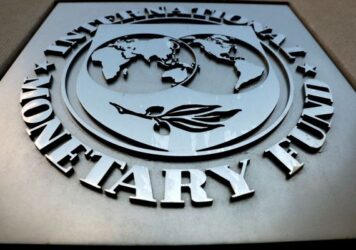Stanbic Becomes First Bank In Ghana To Join IFC’s Climate Finance Advisory Program | Banking/Finance
[ad_1]
Stanbic Bank Ghana and IFC has announced a partnership to improve the bank’s capability to extend climate-smart investments.
Under this Climate Finance Advisory engagement, IFC will support Stanbic through trainings and advisory support to build the bank’s knowledge in identifying and assessing climate-aligned asset classes such as clean energy, clean transport, climate-smart agriculture, energy efficiency, and green buildings.
“As demand for climate financing grows, we at Stanbic are keen to learn new skills and perspectives to deepen our market understanding of climate-specific opportunities across sectors to improve our product offerings to better serve our clients. IFC’s depth of expertise and broad global experience provides that platform for us,” said Kwamina Asomaning, Chief Executive of Stanbic Ghana.
“I commend Stanbic Bank for stepping forward to be a pioneer in this program in Ghana. IFC looks forward to engaging more Ghanaian banks as the challenge of climate change is universal and the business opportunities in tackling it are limitless,” said Kyle F. Kelhofer, IFC’s Senior Country Manager for Ghana, Liberia, and Sierra Leone.
In Africa, an increasing number of climate-related projects are underway. The Climate Finance Advisory Program is designed to help financial institutions in sub-Sharan Africa to integrate climate finance into their lending business and drive such investments.
Demand for climate finance knowledge and opportunities is increasing appreciably across the continent, with significant growth seen in East Africa, particularly Kenya and Tanzania, and in Nigeria. The program has led to roughly $250 million in climate loans to customers of participating financial institutions in those countries.
Interest is also growing among financial institutions for portfolio reviews to assess their climate financing potential. This trend points to further growth in climate financing in Africa.
Source: Peacefmonline.com
| Disclaimer: Opinions expressed here are those of the writers and do not reflect those of Peacefmonline.com. Peacefmonline.com accepts no responsibility legal or otherwise for their accuracy of content. Please report any inappropriate content to us, and we will evaluate it as a matter of priority. |
Featured Video
[ad_2]
Source link













Leave a Reply